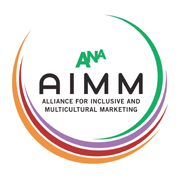ANA’S AIMM Research reveals Consumers want Brands to commit & not back down from Diversity & Inclusion Practices [INFOGRAPHIC]
October 28, 2023

If a brand backtracks on their support for social causes, 77% of consumers would either immediately stop purchasing or look to purchase other brands more supportive of their views, according to a new study. Most of them (76%) will not return to that brand or will only return if the brand changes its practices, found a new report in which more than 9,000 consumers were surveyed.
Conducted by the Cultural Inclusion Accelerator (CIA) that created CIIM (™), in partnership with the Association of National Advertisers’ (ANA) Alliance for Inclusive and Multicultural Marketing (AIMM), the report dissects consumers’ perceptions around inclusive marketing practices, DEIB efforts, as well as the term “woke.” AIMM unveiled the findings today during a panel at ANA’s Masters of Marketing conference.
AIMM shared step-by-step guidelines on moving inclusivity efforts forward while minimizing backlash risk and leveraging brand loyalty from consumers who look to support companies that share their views and values.
The learnings proved the overwhelming majority of consumers today are motivated to support brands that actually do not discriminate. Among the key findings:
- Consumers Applaud Diversity and Inclusiveness in Marketing Efforts: 76% of consumers are comfortable with representation and culture in brands’ marketing efforts.
- Consumers Don’t Want Brands to Backtrack on DEIB Positions: For every 1 consumer rewarding brands that back down from DEIB positions due to criticism, there are 4 to 5 consumers who would reward brands that uphold their DEIB values in the face of criticism.
- Consumers Who Understand What “Woke” Means Are More Likely to Support Brands Described as Woke: For every 1 consumer who understands the true meaning of “woke” and is less likely to support a brand described as truly woke, there are 2 consumers who would support the brand.
“As brands are under a watchful eye, it’s important now more than ever to have a pulse on where consumers stand when it comes to a brand’s representation of diverse consumer segments,” said Bob Liodice, CEO of ANA. “As this latest research from AIMM shows us, consumers are holding brands to high standards of equality and making purchasing decisions based on a brand’s commitment to DEIB and other societal issues.”
Lisette Arsuaga, Co-Founder of AIMM, added: “Our survey findings revealed there is a strong business case for brands to implement DEIB and inclusive marketing practices. Consumer support for multiculturalism and diversity heavily outweighs opposition, and most importantly, there are immediate and long-lasting consequences when brands breach consumers’ expectations around vital social issues. Consumers expect more action, more accountability, and an unwavering commitment to their values, even in the face of criticism. They expect brands to not step away in times of adversity.”
INCLUSIVE MARKETING WINS CONSUMERS
The study shows that inclusive marketing practices motivate the majority of consumers to support brands:
- 64% of consumers are motivated or strongly motivated to support brands that sponsor multicultural events.
- 64% of consumers stated they are motivated or strongly motivated to support brands that advertise on TV with multicultural and diverse storylines, influencers and representation.
- 62% of consumers are motivated or strongly motivated to support brands that offer targeted multicultural and diverse focused products, services or experiences.
- Only 11-13% are against inclusive efforts, with the rest of the respondents (25-26%) not caring in either direction.
CONSUMERS REWARD BRANDS THAT UPHOLD DEIB ACTIONS
The study found that consumers are motivated or strongly motivated to support brands that treat all employees and consumers equally, regardless of gender (71%), race/ethnicity (72%), abilities (72%), age (68%) and sexual orientation (66%).
It also revealed that most consumers support brands that stand up to their DEIB positions and don’t back down due to criticism for the following efforts:
- 77% of consumers would either immediately stop purchasing/using or would continue purchasing/using while looking for other brands more supportive of their social cause.
- Only 23% of consumers would maintain their brand purchases if a brand backtracked on support for a social cause they believed in.
The study also uncovered that Gen Z, Boomers, and LGBTQ+ consumers are most likely to boycott brands. In fact, the study found that 41% of Boomers (ages 59-75) and 41% of Gen Z (ages 18-26) have boycotted a brand or corporation, compared to 34% of Gen X (ages 43-58) and 30% of Millennials (ages 27-42). In addition, 49% of LGBTQ+ consumers have boycotted a brand or corporation, compared to only 32% of non-LGBTQ+ consumers.
It was also revealed that 76% of consumers who have boycotted a brand would never return to the brand again or will only return once the brand has legitimately changed its position and practices.
Sarah Kate Ellis, President & CEO of GLAAD, weighed in: “GLAAD research and historic data on how the general population views LGBTQ people reinforce the findings of this timely and important study from AIMM: supermajorities of Americans believe in equality for LGBTQ people and believe companies should include our community in ways that support equality. Consumers and employees who expect companies to support our community are only growing with younger generations, so marketers should be leaning in and standing up for inclusion, not walking away.”
CONSUMERS BELIEVE “WOKE” HAS BEEN POLITICIZED
In addition, it was uncovered that 63% of consumers believe the term “woke” has been politicized, with only 34% believing the term is important in advocating for social justice issues. Older generations are most likely to believe the term “woke” has been politicized, with 81% of Boomers strongly agreeing or agreeing versus just 55% of Gen Z strongly agreeing or agreeing it has been politicized.
Gilbert Dávila, Co-Founder of AIMM offered some simple advice to marketers nervous about embracing inclusion and getting it wrong: “Marketing to segments today seems more complex than ever before – the fear of getting it wrong is holding brands back from moving forward. It’s important to remember that marketing to inclusive segments is about progress for brands, and not about perfection. Stepping away is a bigger risk than staying in the game.”
The research was conducted from a fully representative and projectable random digital panel survey with a total of 9,277 consumers. The survey was split into two sections of 5,594 and 3,683 respondents to reduce respondent bias and reduce the interview length. Results were weighted by race/ethnicity, generation, and Census divisions to ensure precise representation and projectability.
To download INFOGRAPHIC, CLICK HERE
ABOUT AIMM
Founded in 2016, ANA’s Alliance for Inclusive and Multicultural Marketing (AIMM) is the leading voice in multicultural and inclusive marketing and DEIB, powered by a collective of 200+ industry leaders from across the ecosystem, advancing actionable change to drive business growth and equity for all in today’s diverse marketplace. For more information, visit: www.anaaimm.net.
ABOUT THE ANA
The ANA (Association of National Advertisers)’s mission is to drive growth for marketing professionals, for brands and businesses, and for the industry. Growth is foundational for all participants in the ecosystem. The ANA seeks to align those interests by leveraging the 12-point ANA Growth Agenda, which has been endorsed and embraced by the ANA Board of Directors and the Global CMO Growth Council. The ANA’s membership consists of over 1,400 domestic and international companies, including more than 900 client-side marketers and nonprofit fundraisers and 500 marketing solutions providers (data science and technology companies, ad agencies, publishers, media companies, suppliers, and vendors). Collectively, ANA member companies represent 20,000 brands, engage 50,000 industry professionals, and invest more than $400 billion in marketing and advertising annually.
ABOUT THE CULTURE INCLUSION ACCELERATOR (CIA)
Founded in 2019, the Cultural Inclusion Accelerator™ is a research and insights firm that first decoded the incremental value of deeply connecting with consumer segments through cultural relevance in ads and content with an innovative measure called CIIM™, the Cultural Insights Impact Measure™. CIIM™ has completed over one million individual ad evaluations and nearly 1,000 show/movie evaluations, guiding hundreds of brands to more accurately reflect consumers while accelerating growth. In 2022, CIA created two new metrics, the DEI Accelerator™ to help marketers understand the value of DEI reflections in ads, and the Diverse Media Accelerator™, to gauge the multiplier effect of diverse-owned/targeted media.
































